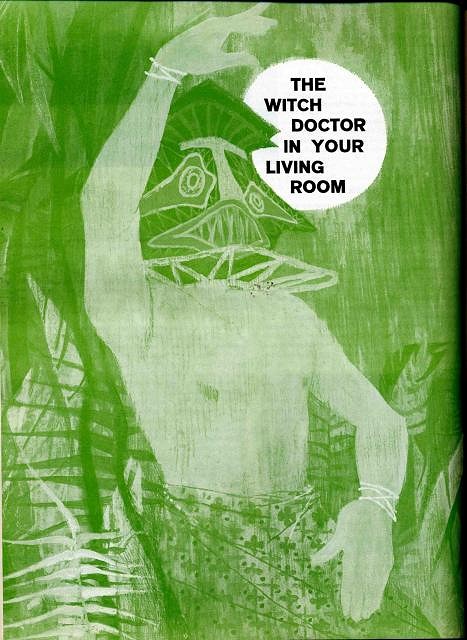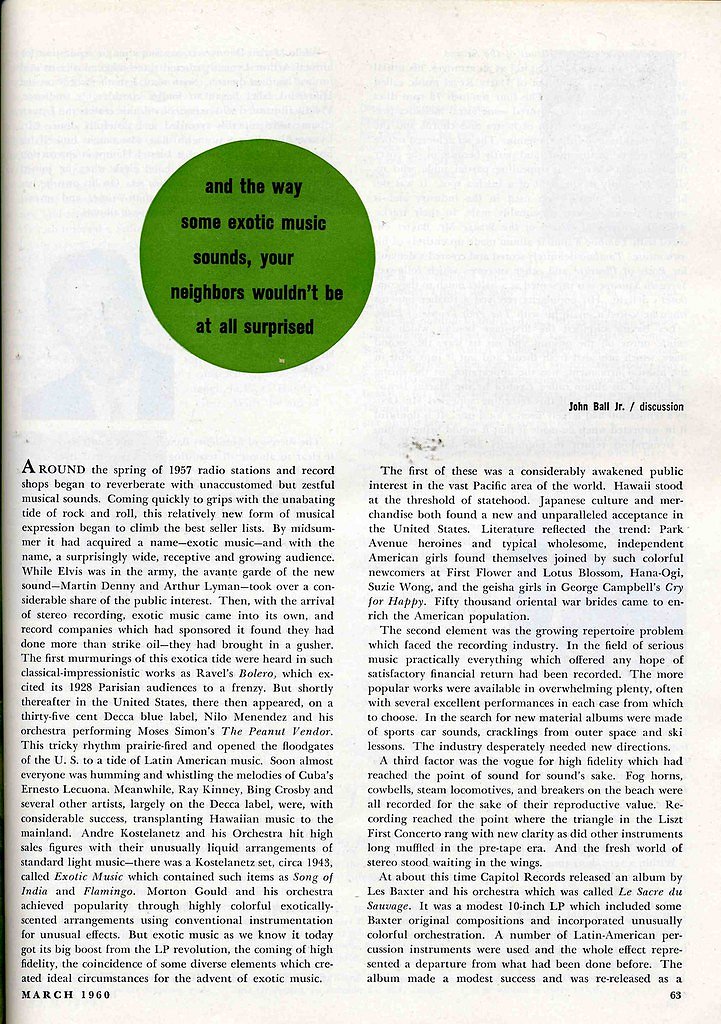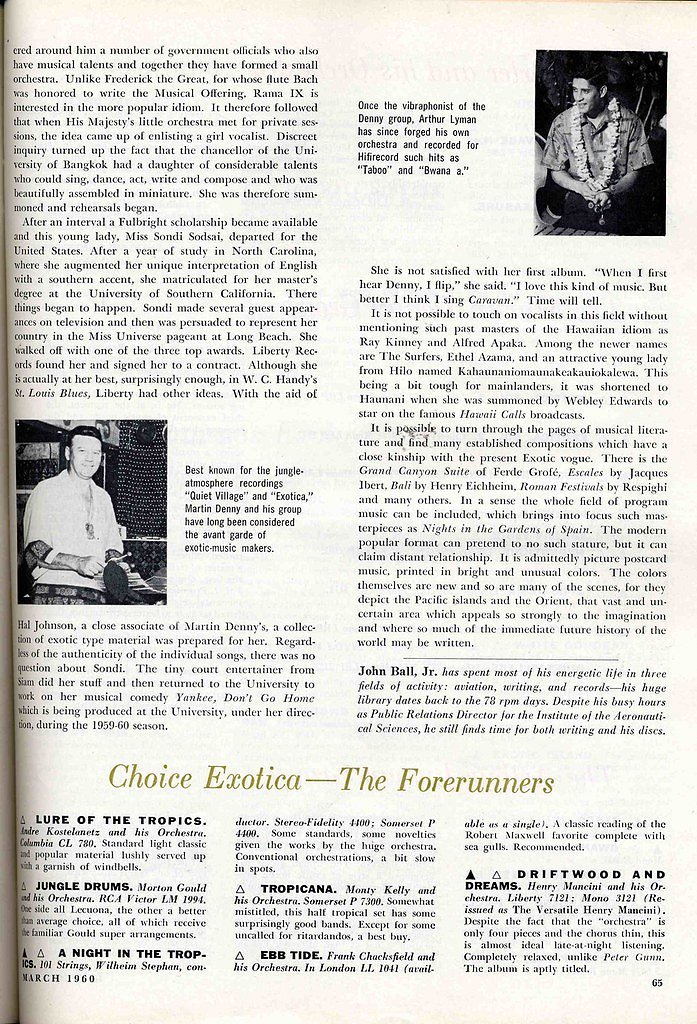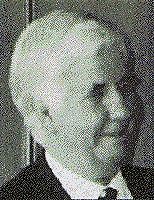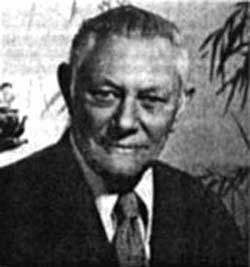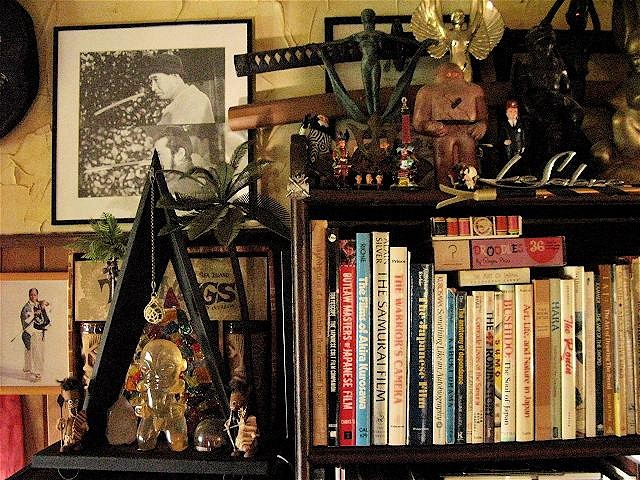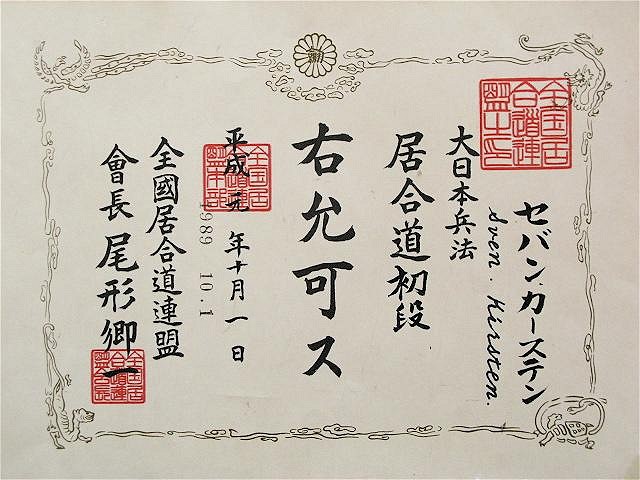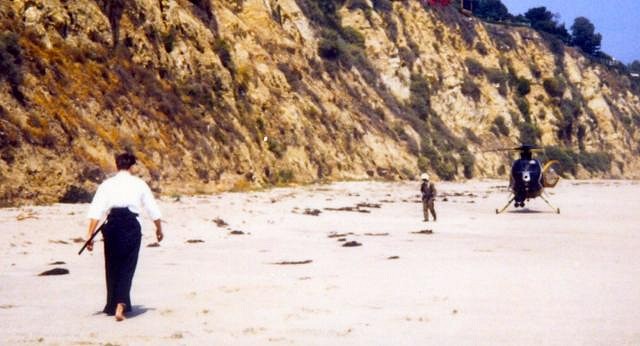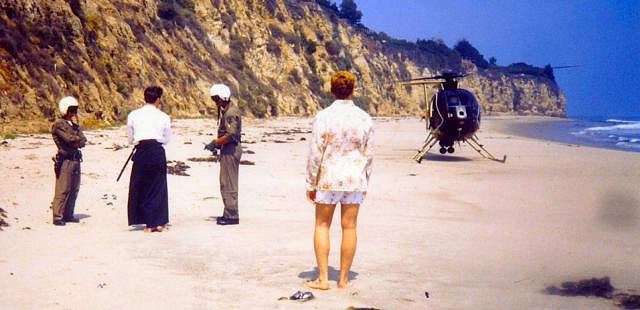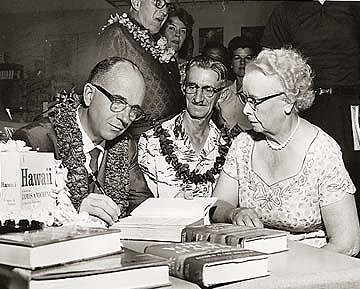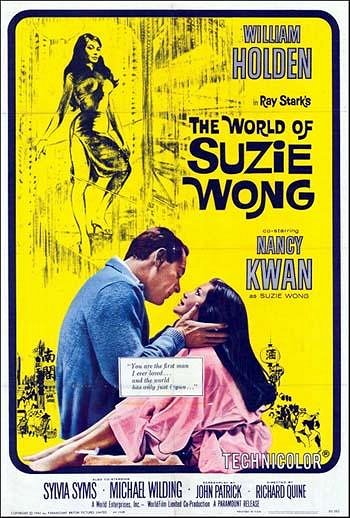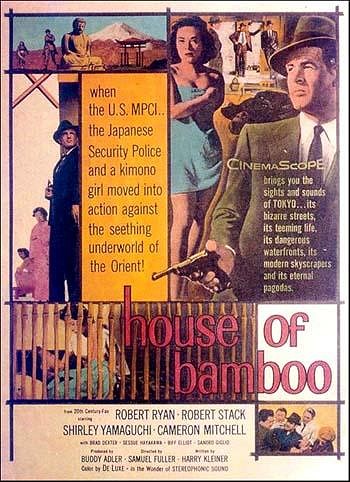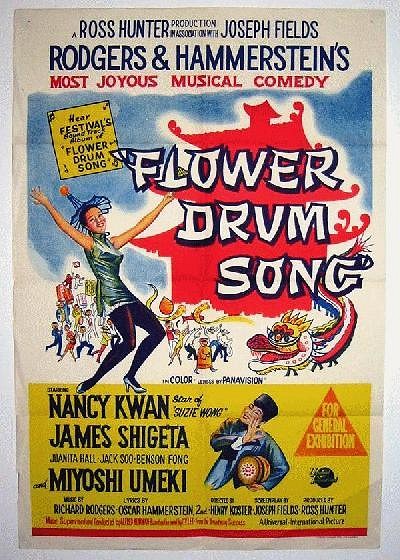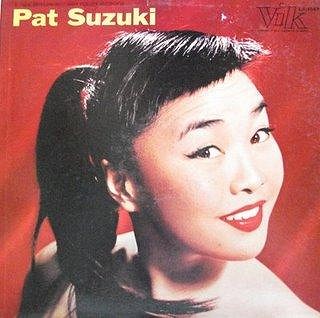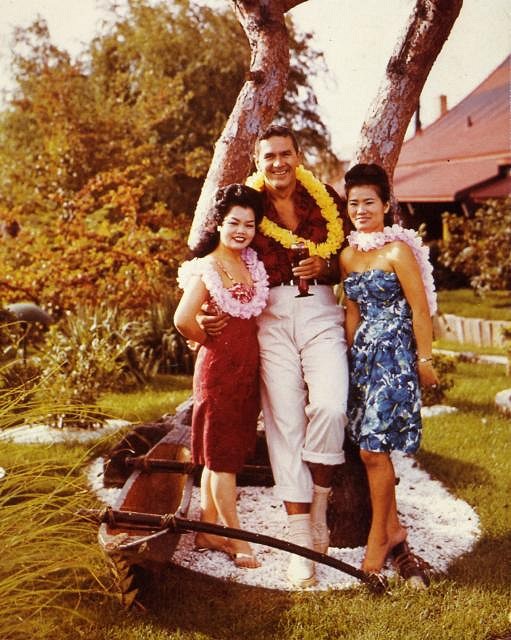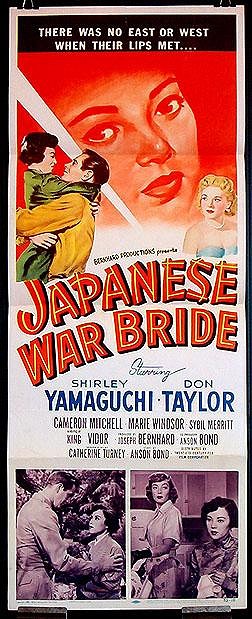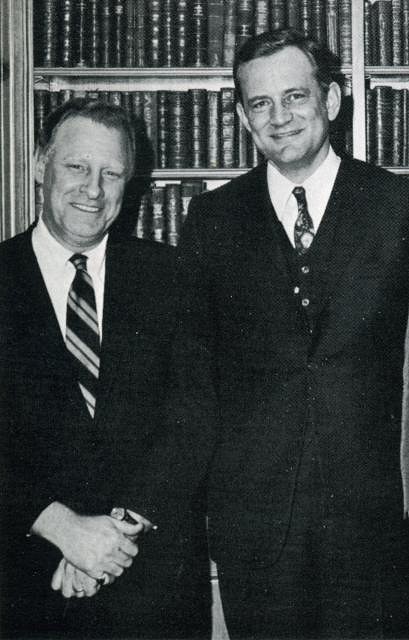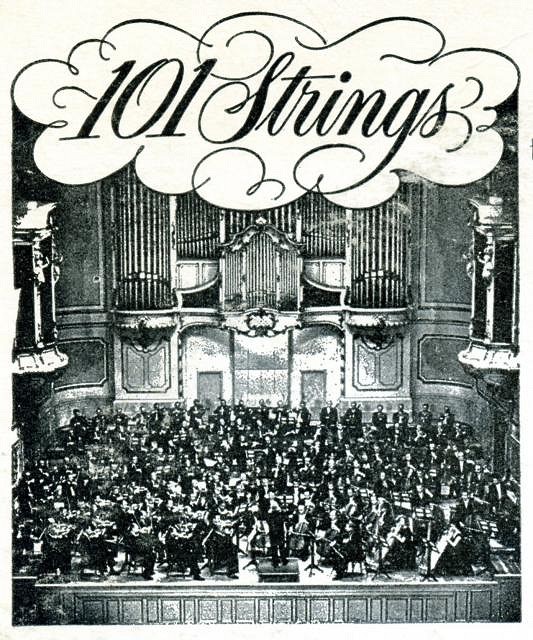Pages: 1 43 replies
|
T
thejab
Posted
posted
on
Sat, Jan 16, 2010 5:34 PM
A friend kindly gave me the March 1960 issue of HiFi/Stereo Review, and I was excited to discover this article on exotica, complete with album reviews!
|
|
V
VampiressRN
Posted
posted
on
Sat, Jan 16, 2010 5:43 PM
Nice find...will have to read more in depth later. Great pics of Les & Arthur. :) |
|
B
bigbrotiki
Posted
posted
on
Sat, Jan 16, 2010 6:43 PM
...... :o Wow, what an incredible find! Such full recognition of the genre in its own time has been previously unheard of, to my knowledge! Am I not right, Exotica afficionados? |
|
V

virani
Posted
posted
on
Sun, Jan 17, 2010 8:49 AM
Thanks for sharing that ! |
|
B
bigbrotiki
Posted
posted
on
Sun, Jan 17, 2010 8:52 AM
How perfect that the writer of the article worked at the "Institute of Aerospace Sciences" in Los Angeles!!! :) John Ball Biography Born in Schenectady, New York, John Dudley Ball Jr. served in World War II with the U.S. Army Air Corps and was later a columnist, broadcaster, and director of public relations for the Institute of Aerospace Sciences in Los Angeles. In the Heat of the Night (1965) introduced Tibbs, an astute black police detective from Pasadena, California, who becomes inadvertently involved with murder in a racially and socially bigoted town in South Carolina. In this award-winning novel and the 1967 film adaptation, Ball's message was “don't judge minorities until you know what you're talking about.” His social consciousness is also evident in Johnny Get Your Gun (1969; Death for a Playmate), in which he addressed the implications of gun ownership. Ball prided himself on research into such fields as jade collecting and the import-export business (Five Pieces of Jade, 1972) and forensic detail, which was always crucial to the solutions he presented to his crimes. His impeccably researched settings and police procedures are also evident in his books featuring Jack Tallon, beginning with Police Chief (1977), as well as in his nonseries works. |
|
MH

Mr. Ho
Posted
posted
on
Sun, Jan 17, 2010 8:59 AM
An excellent find! THanks for sharing this. |
|
B
bigtikidude
Posted
posted
on
Sun, Jan 17, 2010 1:48 PM
so cool, Jeff(btd) |
|
L
litlgrey
Posted
posted
on
Sun, Jan 17, 2010 4:09 PM
Joyousness! |
|
JC
Jeff Central
Posted
posted
on
Mon, Jan 18, 2010 5:31 AM
Correct Bigbro! What an extremely cool find. Thanks for posting jab! Cheers and Mahalo, |
|
J
JOHN-O
Posted
posted
on
Mon, Jan 18, 2010 11:20 AM
The "omissions" here are interesting. No mention of Robert Drasnin, but maybe "Voodoo" was still too recent in 1960 for this article. Did this album fly low and under the radar when it was first released? Maybe it wasn't "discovered" until the Lounge/Tiki revival? Also no Yma, but maybe by this time she was being associated with other musical genres. Or was she grouped into Exotica afterward during the revival period? |
|
B
bigtikidude
Posted
posted
on
Mon, Jan 18, 2010 12:13 PM
I had read that the Robert Drasnin record was pressed in a very small amount. I bet it was probably under the radar of the writer. Jeff(btd) |
|
T
thejab
Posted
posted
on
Mon, Jan 18, 2010 4:47 PM
I wasn't too surprised that Robert Drasnin wasn't mentioned (there are probably others who released relatively obscure exotica that also weren't mentioned) but I was very surprised that Yma Sumac was not included, as her records were very popular (at least it seems so because they've been fairly easy to find in thrift stores) and Les Baxter was involved. I think you may be right John-O, perhaps she was considered more in the Latin genre. |
|
JC
Jeff Central
Posted
posted
on
Tue, Jan 19, 2010 6:49 AM
Yeah, I think the article was written a little too early to include the Robert Drasnin "Voodoo" album. Plus it was pretty obscure as well selling mostly through grocery stores and discount chains. Yma Sumac, I don't think was ever considered Exotica back in the day. Exotica was still a germinating seedling waiting to blossom in the early 1950's. I think she was considered more of an oddity at the time than anything else. Cheers and Mahalo, |
|
JC
Jeff Central
Posted
posted
on
Tue, Jan 19, 2010 6:54 AM
You are probably right Jeff. I will ask Bob next time I talk to him. Since he also worked for Tops he might have a more accurate number. Cheers and Mahalo, |
|
V

virani
Posted
posted
on
Thu, Jan 21, 2010 8:40 AM
I don't consider Yma Sumac as really in the exotica genre. I love in this article the phrase : "the educated whinings of the theremin". That's really well writen !! |
|
B
bigbrotiki
Posted
posted
on
Thu, Jan 21, 2010 10:22 AM
And I had no idea that that was Les Baxter's first appearance on a record! I am glad I have the CD of that album, at least... Maybe he just didn't like Yma, she sure is an acquired taste. He was more into Asian Exotica, it seems, if one goes by the titles of his books. Maybe he was stationed in Asia in WWII?, I couldn't find any specific info about that. And maybe he considered Yma more "folk", or anthropological music, like Elizabeth Waldo and Marais and Miranda, and not loungey enogh. Though she was a Les Baxter protege. But his grasp of the genre, naming Arty, Marty and Les as the prinicipals, and listing such albums as White Goddess and Exotic Island, is amazing. It's as if someone would have written an article about the evolution of Tiki style naming Don, Vic and Steve back then. :) And that guy grows on me the more I find out about him: "He was active in the California nudist society, :) That was my martial art, too! Now all that is missing is that he had a Tiki backyard at his house in Encino! [ Edited by: bigbrotiki 2010-01-23 13:54 ] |
|
JC
Jeff Central
Posted
posted
on
Thu, Jan 21, 2010 1:26 PM
|
|
B
bigbrotiki
Posted
posted
on
Thu, Jan 21, 2010 1:54 PM
Nope: (1911 - 1988) |
|
UT
Urban Tiki
Posted
posted
on
Fri, Jan 22, 2010 6:27 AM
Great find, thanks for sharing. |
|
T
thejab
Posted
posted
on
Sat, Jan 23, 2010 11:38 AM
My pleasure, and thanks Sven for digging up that fascinating info about the author. |
|
B
bigbrotiki
Posted
posted
on
Sat, Jan 23, 2010 1:35 PM
I seem to have this inquisitive streak...can you tell? :D The internet makes it so easy nowaday's, but then again it only goes so far...
(though with age and weight, my face has gotten a bit rounder, too...) The most interesting description of him besides the usual Mystery novel website bios was this piece by a fellow writer:
If you knew a bit about his life — that he’d been a licensed pilot and had traveled widely in Japan and had reviewed classical music for a Brooklyn newspaper and was a police reservist and a martial arts maven — you could almost believe these yarns, which he garnished with vivid detail. So we find out that he was an entertaining character, a talker, who made up stories on top of having lived them. And that he was a cop friend, and his main known credit, the Oscar-winning "In the Heat of the Night", was only loosely built on his novel. The main thing of interest for me was this info: |
|
B
bigbrotiki
Posted
posted
on
Sat, Jan 23, 2010 1:51 PM
You know, I wouldn't be surprised if his wife (and his family) in Encino was/ is Nisei Japanese. Anybody here who can find that out?
[ Edited by: bigbrotiki 2010-01-25 16:20 ] |
|
G
GROG
Posted
posted
on
Sat, Jan 23, 2010 11:25 PM
What is that bigbro, and do you know what it says? |
|
B
bigbrotiki
Posted
posted
on
Sun, Jan 24, 2010 10:42 AM
No, I don't read Japanese myself. It's my certificate of proficiency in Aikido and Iaido, the Art of Drawing the Japanese Sword. I forgot what dan (or belt) I got. I used to practice on the beach in Malibu, until one day in 1988 the police helicopter that checks for nudists and alcohol along the beaches landed because they saw me swing my katana:
And here I am explaining to the nice officers that I am using only a non-sharpened practice blade. They let me keep it:
My friend Moritz R., who was visiting from Germany, is holding a respectful distance. I think this event created his belief that America is a police state. :) Hey, it's just like getting pulled over in traffic! [ Edited by: bigbrotiki 2010-01-25 16:21 ] |
|
K
Kawentzmann
Posted
posted
on
Sun, Jan 24, 2010 12:00 PM
Looks like from a movie I wouldn’t want to miss. Like Bruce Lee in New-Guinea. |
|
B
bigbrotiki
Posted
posted
on
Sun, Jan 24, 2010 12:19 PM
Well, I will refrain from posting the picture that was taken seconds later: The two halfed bodies lying in the red sand! :D |
|
P
professortiki
Posted
posted
on
Mon, Jan 25, 2010 5:48 AM
Well, there is definitely something I would like to say about this. First of all, these guys did NOT let you continue to rehearse with your sword, although we were on a completely empty beach. One guy unbelievably said "You know, it's a sword. If it was a gun I wouldn't mind, but a sword really scares me". Secondly THEY ordered me to stay away from the scene. Thirdly, the thing about this incident that stays in my mind, is that these guys both were wearing helmets with mirrorglass visors. You could not see their faces at all. They looked exactly alike. In case of anything they'd be doing to you, you were unable to tell, which of the two did it. Even an eye witness would not help you. And I am convinced, that's exactly the point. |
|
B
bigbrotiki
Posted
posted
on
Mon, Jan 25, 2010 4:16 PM
Yah Herr Professor! Thank you for being my eye witness, if not for that (and the pictures) nobody would have believed this actually happened. I do think though if I would be walking up to a dude I just saw wield a 30 inch blade I would keep my visor down -- it's an old custom. :) But not to get more off-topic than we already did, back to the genre of Exotica music, and my belief that it's popularity was in part due to America's fascination with Asia in the 50s and 60s, which I believe was forged by the contact with it that was made by so many Americans in the second World War (just like in Polynesia). Some of the very same people that inspired Polynesian pop did so with Asian pop, mainly Rogers & Hammerstein and James Michener...
In the years after the war, there were tons of movies, books, and music portraying American- Asian relations...
Now I do NOT want to start an "Asian Pop" thread on TIKI Central, I am saying Asia's had a notable effect on the EXOTICA music genre (!)
...but in terms of STYLE , design and decor, it was not a defining factor (the "Asian" font excepted). Let me close my observations with a quote from my upcoming CD booklet: As the 1955 paperback edition of James Michener’s “Sayonara” touts: “This challenging novel probes into the question of why so many American men prefer the tender and submissive women of the exotic East”. |
|
MH

Mr. Ho
Posted
posted
on
Mon, Jan 25, 2010 10:16 PM
So, some other thoughts on this posting (again, very excited that this was tracked down!) First off, I think it's interesting to reflect the author saying that all music worth recording had been recorded already! That's a sign of the times: that a few people held the reigns on what was deemed OK to be recorded; you didn't have home studios and alas, as much as amateur music on the market. But, with that comes filtering out less mainstream sound; there was no internet or other large body of people to help vote up and down what was liked and wasn't. Regardless of whether it was democratic or not, on most of these records I have, there is a serious, studied approach to the music being presented , regardless of style. So, the filtering done by the labels and the producers, had more knowledge about music than I think most "producers" do today. Knowledge of scoring and instrumentation, and instrumental prowess were all required by composers (without the repertoire ever approaching virtuosity or self-indulgence) such that the artist's effects were conveyed, whether via Western instruments or Eastern. On the other hand, I can't help but often listen to these records and feel like many of the attempts fell short of trying to present exotic far-away music authentically; there are a few different ways to look at this from my perspective as a percussionist and somebody who plays music from a very wide range of cultures and traditions around the globe:
The "cheese" factor on some of the tunes drives me nuts; there are beautiful lush interps of standards, and original music "inside the exotica boundaries" and other times, the tunes are pretty lame, and poor executions of "exotic" sounds that seem to me to usually be a result of juxtaposing the wrong instrument choices with a style that doesnt match or vice versa. I can't help but wonder if there was a guessing game going on , trying multiple combinations just to see what would work/stick/rise up on the charts. My guess is that there wasn't that much pre-meditated thought; there was perhaps a consideration for what audiences could digest, and then there was a westernized approach to arranging that music for the recording in such a way that it would be a hi-fi success--itself which is interesting since the end goal seemed to be as much about the medium as the art. Or, maybe they couldn't get the right players - if you couldn't read music, you probably weren't recording back then. With all the talk in the article about eastern music and bringing the sounds of far away places to listeners: I am definitely not proposing that good exotica means "authentic music from exotic places" here; my enjoyment in writing for the Orchestrotica Mini and previously, for WAITIKI, was the ability to combine elements of harmony, rhythm, melody, instrument choice, and culture however I wanted and still keep it under a general umbrella of music called "exotica" that would be enjoyable to the listener without having to "know" about it extensively. That said, when I apply something from another musical tradition outside my own (whatever that may be), I like knowing why I did it, and how I did it - and if I changed it in some way, I like to be able to express that to an interested party at a show, in private, or whatever. I've actually found that most audiences enjoy getting a little bit "more" from the composer about what's behind the music, especially new music, and exotica definitely is "new" these days to most listeners outside TC and other niche arena. It's fascinating to read this critics interpretation of the composers and artists of the day and compare that to my own assumptions. Thanks again for tracking this down bigbrotiki! Mr. Ho Mr. Ho's Orchestrotica and Orchestrotica Mini |
|
B
bigbrotiki
Posted
posted
on
Mon, Jan 25, 2010 11:41 PM
Nonono, not me, the Jab posted it, after a friend had given him the magazine. A real discovery, indeed! About your heartfelt musings about the authenticity of the music, and the reviewer's understanding of it: To me it is, just like with Tiki and Polynesian pop, all about what people back then were capable of producing as what they thought was an authentic representation of the culture. Not that they necessarily believed that it WAS the culture, but they felt good about creating a close enough representation of it, as an expression of their fascination with it. It seems you are still judging it, even though you are aware of that, with all your intellectual and musical experience of today, which is far superior to most peoples level of awareness back then. I am not to saying they were dumb and ignorant, they actually were as open-minded and culturally educated as they possibly could have been --for the time. And to me, in some way, this lack of knowing, this innocence, is what makes Exotica ( AND Tiki ) so charming today. |
|
MH

Mr. Ho
Posted
posted
on
Tue, Jan 26, 2010 9:03 AM
I most certainly am judging it; casting my own opinion :wink: The interesting question to me is about that whole authenticity/non-authenticity intent. It would be interesting to know from the horse's mouth what the real vibe was behind all of this (no pun intended!) I don't buy the fact that those of us creating this music are more intellectual about music today; our walls have been lowered with the web, the ability to travel, etc but I would imagine that the level of western musical training that most of those players had was beyond what most record-producing musicians are doing today. e.g. One probably had formal training and came out of a school, you could read, arrange, maybe improvise, and knew enough to re-arrange or transcribe orchestral or dance hits of the day etc. and understood harmony (whether jazz, asian cliche, etc). There were no synths or garageband to help out in the process or other shortcuts. No sampling. This is why its curious to me that with this assumed training, the execution of some of the music is just so weird/bad in some cases (and great in others)...it really makes me wonder if there was a race to just churn out stuff and press records with interesting juxtapositions and combos. I hear you on the "innocence" thing; but there is a difference between a beautiful "faux" execution of something and a baby throwing paint at the canvas over and over where it's called "art" every 1 in 100 tries since the splash was "just right" and looked artistic or had some type of audience value. I don't think it was quite this random. Enough musings from me! Mr. Ho |
|
K
Kawentzmann
Posted
posted
on
Tue, Jan 26, 2010 11:45 AM
Things happened really fast in music and fashion during the 50s and 60s, comparable to the technology race today. So, yes I believe many records were recorded to be in the race. [ Edited by: Kawentzmann 2010-01-26 11:45 ] |
|
T
tabuzak
Posted
posted
on
Tue, Jan 26, 2010 11:51 AM
Interesting, so then maybe this is a distinction between Exotica and Neo-Exotica (i.e. Waitikiki, Mr. Ho, Stolen Idols). Jack |
|
B
bigbrotiki
Posted
posted
on
Tue, Jan 26, 2010 2:09 PM
I know that there definitely was, one of the best examples is "The Surfmen" and their "Exotic Island" album, which was purely put together to capitalize on the Exotica trend. I know because I knew the man behind it: David L. Miller, founder of the 101 Strings series, but also of the EUROPA budget label in Germany, for which my dad became the General Manager:
To make clear that he was only interested in making money, Miller's famous credo was "We are not in the record business, we are in the plastics business!" He had figured out that classically trained orchestras would work for peanuts in Germany after the war, and so he recorded his 101 Strings albums with the Hamburg Radio Orchestra, at the Hamburg Music Hall, that's the place the well known photo from the front and back of many of the 101 Strings albums depicts:
See the box on the left above the stage? They had their mixing board in there, and I remember sitting up there in my early teens when visiting my dad at work, recording one of the label's 2nd rate cover bands, put together from studio musicians. That's why I put a track from "Exotic Island" on my "Sound of Tiki" CD. And also to leave no doubt about the fact that the Exotica trend was mainly a COMMERCIAL endeavor --which was before "going commercial" became a bad thing. :) The irony is that not only is that album now appreciated by Exotica fans as one of the finer examples of the genre, but even our music critic John Ball lauded it in the article that started this whole thread. Even funnier is that, while he is convinced that "the bird calls are the real thing, and so are the jungle noises" I myself felt I had this to say in my liner notes: "This track ("Bamboo") was chosen for this compilation for two reasons: Because of its funny phony bird calls--which sound more like retching after having had one too many Zombie cocktails (Dave Miller was known to down 14 martinis and to still be able to work)--and also because this author’s father was hired by Miller in the 1960s..." Boy, I get to roll down my whole life here on this thread! First "Duel on the Beach" and now early childhood recording session experiences (NOT with The Surfmen, unfortunately, who recorded in Hollywood, not Hamburg) |
|
ML
Marty Lush
Posted
posted
on
Tue, Jan 26, 2010 3:07 PM
Did anyone notice the article's mention that Rituals of the Savage was "presented as a ballet"? Did I understand that right? A ballet was produced to the music of the album? Or did that mean something different? |
|
T
thejab
Posted
posted
on
Tue, Jan 26, 2010 5:20 PM
Mr. Ho, I appreciate your observations as a musician, but some of the best music (exotica and rock 'n roll, to name two) is good because it doesn't take itself too seriously, in my opinion. I like to listen to serious forms of music (jazz, classical) also, but exotica always seemed to me more appropriate as background music, preferably in a tiki bar or luau, than music one sits down and listens carefully to. I'm sure lots of people here may disagree with me, but that is the way I look at it. |
|
JC
Jeff Central
Posted
posted
on
Wed, Jan 27, 2010 5:59 AM
I noticed this too. Very interesting.... Cheers and Mahalo, |
|
JC
Jeff Central
Posted
posted
on
Wed, Jan 27, 2010 6:31 AM
After 1957 most albums were made to "cash in" on the trend of Exotica. Another example is Robert Drasnin's "Voodoo" album. It was composed and recorded in a matter of months!! Thanks for the history lesson on the Somerset Label Bigbro. They really cranked them out during the day. Great pics too! You look a lot like your Dad. Cheers and Mahalo, |
|
T
tabuzak
Posted
posted
on
Wed, Jan 27, 2010 6:45 AM
I somewhat agree with thejab on this one. Exotica by the likes of Les Baxter (the originator?), Robert Drasnin, and Milt Raskin took a Hollywood view of Orientalism with it's compositions and sat it in front of top notch players, who probably had no more committment to this musical style than any other. This is great stuff. On the other hand, Martin Denny and Arthur Lyman got their inspiration along the same lines, but being musicians that played out regularly as quartets and quintets, started to take the style more seriously. I see the musicians in Waitiki, The Stolen Idols, and The Orchestrotica Mini, following suit more in this tradition - but possibly even more seriously. Exotica is (or was?) a sub-genre of Easy Listening. It's fun. It's got variety. Fortunately these serious guys seem to be keeping the fun in there too. |
|
K
Kawentzmann
Posted
posted
on
Wed, Jan 27, 2010 7:56 AM
It’s most obvious with the Command Percussion LPs of Enoch Light. You hear the sound of pros in a state of the art studio, not a make-believe jungle. People bought them because they had stereos but no stereo records and the clerk recommended them because they were good. Pros will have as much fun as anybody putting something interesting together. The difference is that they don’t struggle and it appears as easy. [ Edited by: Kawentzmann 2010-01-27 07:57 ] |
|
TJP
Tiki Joe's Pop
Posted
posted
on
Wed, Jan 27, 2010 8:32 AM
Agreed, wholeheartedly. Enoch's timing, and his capitalizing on the burgeoning hi-fi world was such a smart use of the technology and possibilities. I had always wished that Enoch Light would have ventured into Exotica, seeing that he had obviously amassed, with the help of Command (and Project 3), some tremendous musicians, and he created such thoughtful arrangements within that stereo spectrum. His Bossa Nova/Brazilian influenced LPs are truly something else. BTW- thanks for the terrific article, thejab- what a cool find. |
|
T
tabuzak
Posted
posted
on
Wed, Jan 27, 2010 9:07 AM
There were arrangements recorded of Exotica compositions on the Command label by Enoch Light, Dick Hyman, and more. You may have heard them though and didn't realize they were exotica - or at least they didn't sound like Martin Denny. A well known example is "Swamp Fire." Compare the versions on Light's "Dimension 3" LP with Denny's on "Afro-Desia." The hyper active (SABP style) arrangements by Enoch Light give Exotica a character that could be called at odds with the often tranquil seductive sounds of the Denny/Lyman/Baxter contingent. Same goes for Esquivel. He souped the stuff up. Not judging here - just pointing out the differences. I love Enoch Light and Esquivel especially. I use them sparingly in Exotica mixes though. Jack |
|
TJP
Tiki Joe's Pop
Posted
posted
on
Wed, Jan 27, 2010 10:26 AM
Thanks, Jack! I've got to get my hands on a copy of "Dimension 3"- great to know. Not a surprise to hear your explanation of his "less-than-tranquil" approach. Enoch and Esquivel surely fought for that "far out" title. |
|
P
professortiki
Posted
posted
on
Thu, Aug 21, 2014 7:11 AM
"Yah Herr Professor! Thank you for being my eye witness, if not for that (and the pictures) nobody would have believed this actually happened. I do think though if I would be walking up to a dude I just saw wield a 30 inch blade I would keep my visor down -- it's an old custom." I guess by now the number of people questioning my visionary foresight, that America IS indeed a police state, has significally become smaller. |
Pages: 1 43 replies

